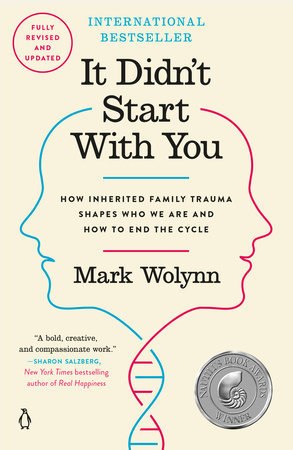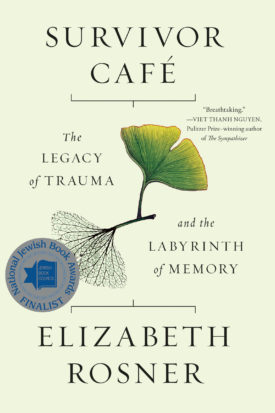YOU MIGHT ALSO LIKE
CLEAR ALL
BY TOPIC
BY TEACHER
BY TYPE
FILTER

TOPIC
- Healing Approaches (31)
- Child’s Trauma (30)
- Mind-Body Connection (22)
- Dysfunctional Childhood (21)
- Self-Healing (21)
- BIPOC Well-Being (20)
- Veteran Well-Being (19)
- Black Well-Being (18)
- Racism (17)
- Post-Traumatic Growth (16)
- Emotional and Mental Health (13)
- Generational Healing (13)
- Racial Healing (13)
- Resilience (12)
- Community Healing (11)
- Self-Care (11)
- Self-Discovery (11)
- Somatic Practices (10)
- Activism/Service (9)
- Neuroscience (9)
- Racial Discrimination (9)
- Sexual Assault or Abuse (9)
- Stress Management (9)
- Trauma-Informed Therapy (9)
- Caregiver Well-Being (8)
- Embodiment (8)
- Epigenetics (8)
- Somatic Experiencing (8)
- Women’s Well-Being (8)
- Addiction (7)
- Anxiety (7)
- Breathwork (7)
- Family Dynamics (7)
- Inner Child (7)
- Racial Justice (7)
- Shame (7)
- Transformation (7)
- Chronic Health Conditions (6)
- Self-Reflection Practices (6)
- Social Justice (6)
- Addiction Recovery (5)
- Cancer (5)
- Imagination and Creativity (5)
- Integrative Medicine (5)
- Life-Altering Injury (5)
- Naturopathy (5)
- Self-Compassion (5)
- Self-Development (5)
- Art Therapy (4)
- Awareness (4)
- Depression (4)
- EMDR (4)
- Finding Meaning (4)
- Functional Medicine (4)
- Global Challenges (4)
- Honoring Emotion (4)
- Identity (4)
- Illness and Injury (4)
- Meditation (4)
- Military to Civilian Re-entry (4)
- Parenting (4)
- Relationship Challenges (4)
- Self-Acceptance (4)
- Self-Love (4)
- Setting Limits and Boundaries (4)
- Stress (4)
- Traumatic Grief (4)
- AAPI Well-Being (3)
- Attachment Theory (3)
- Codependency (3)
- Cross-Cultural Dynamics (3)
- Disabled Well-Being (3)
- Discrimination (3)
- Energy Healing (3)
- Forgiveness (3)
- Grief (3)
- Hero’s Journey (3)
- Intimacy (3)
- Journaling (3)
- Letting Go (3)
- Living with Illness (3)
- MDMA (3)
- Mental Health Challenges (3)
- Mindfulness Practices (3)
- Psychedelic Research (3)
- Psychedelic-Assisted Therapy (3)
- Search for Purpose (3)
- Self-Worth (3)
- Spiritual Awakening (3)
- Spiritual Growth (3)
- Spirituality and Health (3)
- Suffering (3)
- Toxic Relationships (3)
- Well-Being (3)
- Abandonment (2)
- Adaptability (2)
- Alcohol Addiction (2)
- Anger (2)
- Athlete Well-Being (2)
- Body Mapping (2)
- Child’s Emotional Growth (2)
- Cognitive Behavioral Therapy (2)
- Communication Skills (2)
- Compassion (2)
- Connection with Nature (2)
- Consciousness (2)
- Creative Well-Being (2)
- Divorce and Breakup (2)
- Fellowship and Community (2)
- Gender Discrimination (2)
- Grit (2)
- Guided Imagery (2)
- Higher Calling (2)
- Homeopathy (2)
- Incarceration (2)
- Indigenous Well-Being (2)
- Inner Peace (2)
- Internal Family Systems (2)
- Joy (2)
- Massage (2)
- Memoir (2)
- Men’s Well-Being (2)
- Neuropsychology (2)
- Offering Support to Others (2)
- Poverty/Economic Inequality (2)
- Presence (2)
- Psilocybin (2)
- Psychological Approaches (2)
- Sacred Feminine (2)
- Self-Actualization (2)
- Self-Limiting Beliefs (2)
- Social Responsibility (2)
- Speaking Your Truth (2)
- Spiritual Healing (2)
- Suicide (2)
- Trust (2)
- Vulnerability (2)
- Wholeness (2)
- Yoga (2)
- Accepting Love (1)
- Acupuncture (1)
- Adoption (1)
- Anorexia (1)
- Archetypes (1)
- Auric Field (1)
- Authenticity (1)
- Autoimmune Disease (1)
- Ayahuasca (1)
- Ayurveda (1)
- Belonging (1)
- Betrayal (1)
- Biofeedback (1)
- Brain Health (1)
- Buddhism (1)
- Building Culture (1)
- Chakras (1)
- Chronic Pain (1)
- Compassion Meditation (1)
- Conflict Resolution (1)
- Courage (1)
- Death or Loss of a Loved One (1)
- Death or Loss of a Parent (1)
- Death or Loss of a Sibling (1)
- Disconnection (1)
- Domestic Abuse (1)
- Eating Disorders (1)
- Ecospirituality (1)
- Emotional Intelligence (EQ) (1)
- Empathy (1)
- Empowerment (1)
- Entrepreneurship (1)
- Environmental Exploitation (1)
- Exercise (1)
- Fatherhood (1)
- Fear (1)
- Female Empowerment (1)
- Gender Identity (1)
- Genetics (1)
- Gratitude (1)
- Guilt (1)
- Habits of Mind (1)
- Handling a Loved One’s Illness (1)
- Happiness (1)
- Healing Touch (1)
- Healthy Eating (1)
- Hope (1)
- Immigration and Assimilation (1)
- Indigenous Rights (1)
- Infidelity (1)
- Inflammation (1)
- Inner Strengths (1)
- Intuition (1)
- Islam (1)
- Job Loss (1)
- Karma (1)
- Kindness (1)
- Kundalini Yoga (1)
- LGBTQIA Well-Being (1)
- Life Force Energy (1)
- Lifestyle Medicine (1)
- Loneliness (1)
- Love (1)
- Lovingkindness (1)
- Memory (1)
- Mindfulness (1)
- Mindfulness Meditation (1)
- Moral Philosophy (1)
- Mythology (1)
- Near-Death Experience (1)
- Neurodiversity (1)
- Neuroplasticity (1)
- Nonviolence (1)
- OCD (1)
- Personal Development (1)
- Poetry (1)
- Polyvagal Theory (1)
- Positive Psychology (1)
- Positive Thinking (1)
- Prayer (1)
- Psychology (1)
- Quantum Physics (1)
- Race and Gender (1)
- Racial Identity (1)
- Reiki (1)
- Romantic Relationships (1)
- Science and Spirituality (1)
- Self-Esteem (1)
- Self-Mastery (1)
- Self-Realization (1)
- Sex (1)
- Sexuality (1)
- Sleep (1)
- Social Anxiety (1)
- Social Psychology (1)
- Sound Healing (1)
- Storytelling (1)
- Synesthesia (1)
- Tapping/EFT (1)
- Theta Healing (1)
- Traditional Chinese Medicine (1)
- Transgender Well-Being (1)
- Transpersonal Psychology (1)
- Visualization (1)
- War (1)
- Whiteness (1)
- Yoga Therapy (1)
- Zen Buddhism (1)
FILTER

TEACHER
- Resmaa Menakem (4)
- Alice Miller (3)
- Bernie S. Siegel (3)
- Claudia Black (2)
- Elizabeth Stanley (2)
- Ellen Bass (2)
- Judith Blackstone (2)
- Larry Dossey (2)
- Larry Ward (2)
- Louise Hay (2)
- Nadine Burke Harris (2)
- Alanis Morissette (1)
- Amit Goswami (1)
- Andrew Weil (1)
- Arisika Razak (1)
- Belleruth Naparstek (1)
- C. S. Lewis (1)
- Christine Caldwell (1)
- Cyndi Dale (1)
- Deena Metzger (1)
- Deepak Chopra (1)
- Diane Stein (1)
- Edward Tick (1)
- Elisa Shankle (1)
- Ervin László (1)
- Fariha Róisín (1)
- Francine Shapiro (1)
- Frans Stiene (1)
- HeatherAsh Amara (1)
- Jacqui Lewis (1)
- James Baldwin (1)
- James Gordon (1)
- Jasmine Marie (1)
- John Bradshaw (1)
- John Firman (1)
- Ken Wilber (1)
- Lori Gottlieb (1)
- Marc Ian Barasch (1)
- Martin Seligman (1)
- Michelle Cassandra Johnson (1)
- Nicole LePera (1)
- Noah Levine (1)
- Oprah Winfrey (1)
- Osho (1)
- Otto Scharmer (1)
- Queen Afua (1)
- Robert A. Johnson (1)
- Roberto Assagioli (1)
- Rudolph Ballentine (1)
- Sharon Salzberg (1)
- Sheila Rubin (1)
- Sonia Choquette (1)
- Stephen Porges (1)
- Tara Brach (1)
- Thich Nhat Hanh (1)
- Thomas Hübl (1)
- V (1)
- Will Cole (1)
- William Bloom (1)
- Zainab Salbi (1)









